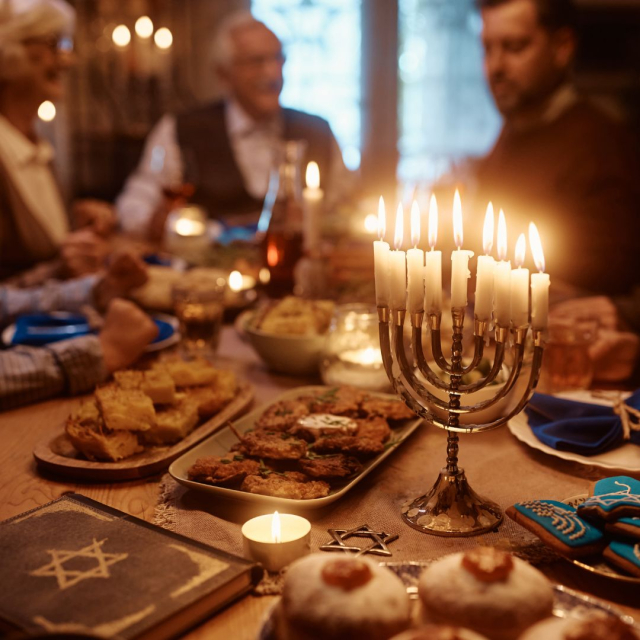Spain, a country known for its cultural and religious diversity, is home to a wide range of religious festivals that are not part of the Catholic tradition. These festivities represent the practices and beliefs of various religious communities present in the country, each with their own rituals, traditions and spiritual meanings.
January
Chinese New Year
Chinese New Year, also known as the Spring Festival, is celebrated by the Chinese community in Spain. Although the exact date varies depending on the lunar calendar, it usually falls between the end of January and mid-February. Celebrations include parades, dragon and lion dances, and an abundance of traditional Chinese food.
February
Imbolc (St. Brigid's Day)
Imbolc is a Celtic festival that marks the beginning of spring. Although not widely celebrated in Spain, some pagan and neopagan communities may recognize this date with purification rituals and celebrations of the rising light.
March
Purim
Purim is a Jewish holiday that commemorates the salvation of the Jewish people in Persia, according to the Book of Esther. In Spain, Jewish communities often celebrate Purim with readings of the Megillah of Esther, costumes, gifts of food, and charity.
April
Vaisakhi
Vaisakhi is an important festival for Sikhs that commemorates the creation of the Khalsa (the Sikh community) in 1699. In Spain, Sikhs can celebrate Vaisakhi with colorful processions, communal prayers, and distribution of food to the needy.
May
Vesak (Buddha Day)
Vesak is the most important Buddhist holiday, celebrating the birth, enlightenment and death of Buddha. In Spain, Buddhist communities can perform worship ceremonies, meditation and acts of charity during Vesak.
June
Eid al-Fitr
Eid al-Fitr marks the end of Ramadan, the Islamic fasting month. Muslims in Spain celebrate this holiday with special prayers at the mosque, sharing festive meals with family and friends, and giving alms to those in need.
July
Feast of Santiago Apostle
Although it is a Catholic holiday, the Feast of Saint James the Apostle also has meaning for the Orthodox Christian community, especially among Orthodox Russians in Spain. It is celebrated with special religious services and community events.
August
Raksha Bandhan
Raksha Bandhan is a Hindu holiday that celebrates love and unity between brothers and sisters. In Spain, the Hindu community can celebrate Raksha Bandhan with ritual ceremonies where sisters tie a sacred thread (rakhi) around their brothers' wrists as a symbol of protection and brotherly love.
September
Rosh Hashana
Rosh Hashanah, the Jewish New Year, marks the beginning of the High Holy Days in Jewish tradition. In Spain, Jewish communities observe Rosh Hashanah with special religious services, blowing of the shofar, traditional foods such as honey and apple, and personal reflections on the year ahead.
October
Durga Puja
Durga Puja is a Hindu festival that celebrates the victory of the goddess Durga over the demon Mahishasura. In Spain, Hindus can celebrate Durga Puja with elaborate altar decorations, devotional songs, traditional dances, and processions.
November
Diwali
Diwali, also known as the Festival of Lights, is a Hindu holiday that celebrates the victory of good over evil and light over darkness. In Spain, Diwali can be celebrated by the Hindu community with lit oil lamps, fireworks, traditional sweets and family rituals.
December
Hanukkah
Hanukkah, the Jewish Festival of Lights, commemorates the rededication of the Temple in Jerusalem. In Spain, Jewish communities celebrate Hanukkah by lighting candles in a menorah, singing holiday songs, playing dreidel, and sharing deep-fried foods such as sufganiot (doughnuts).
The calendar of non-Catholic religious festivities in Spain for the year 2024 reflects the diversity and spiritual richness of the various religious communities present in the country. These holidays are not only occasions for worship and spiritual reflection, but also opportunities to strengthen community ties and promote cross-cultural understanding. As Spain continues to be a melting pot of cultures and beliefs, these festivities offer a window into the deep-rooted traditions and vitality of non-Catholic religious practices in the nation.
